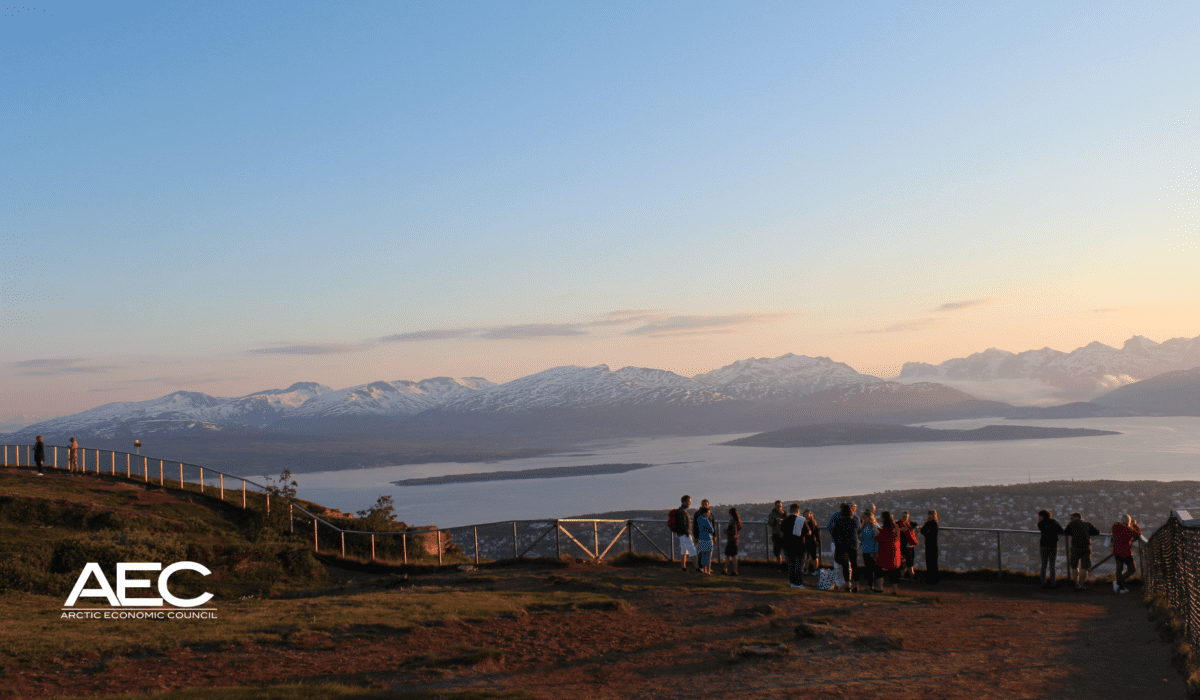
Banks banning investments in the Arctic will hurt even more now
Almost 50 banks, insurance companies and pension funds are blocking for investments in energy in the Arctic as a climate measure. The Arctic Economic Council (AEC) emphasizes that the source of the climate change is global and instead of banning investments in the Arctic, the world should look to the Arctic for guidance, having one of the world’s best track records for sustainable development.
AEC supports the Global Climate Goals and Sustainable Development Goals and notes with great concern the research on the effects of climate change which impact the Arctic twice as hard as rest of the world.
In February the EU approved gas energy activities in the list of environmentally sustainable economic activities covered by the EU taxonomy, recognizing it as a transition energy source. At the same time, two more banks are making it difficult to conduct energy development in places like Alaska, Greenland, and the Nordic countries. Places with a good track record. This time AIG Insurance and the Dutch Pension Fund, where the latter of the two is stating it will lay specific emphasis on stopping extraction in the Arctic and investments in new production – and just like that companies like Equinor that is in the driver’s seat in the green shift are disqualified from receiving financing.
– We see an increasing overcompliance from the world’s banks and pension funds. The people in the Arctic are some of the first to feel the effect of global warming but the solution is not to stop developing the region. The solution is to find the best way to come through the green transition, and a lot of the solutions are in the Arctic. The Arctic can take a leading part in showing that the transition is possible – banks stopping investments in the Arctic are putting a big brake on the green shift, says Executive Director of the AEC Mads Qvist Frederiksen.
The solution lies in the Arctic
– The Arctic has one of the world’s leading energy development track records, which is a result of businesses and people with a history of securing the sustainable development of our societies and resources. Banks banning investment in the Arctic and companies signing pledges not to sail in the Arctic indicates a lack of understanding of both the problem and the solution. The source of the climate change is global, and research shows that most of the pollution comes from outside the Arctic region. Banning investments will not only harm energy projects but also SMEs, local societies, and in turn the environment, says Qvist Frederiksen.
A recent membership survey in the AEC showed that the “Ambition to keep the Arctic untouched and protected” was the main obstacle for sustainable development in the Arctic.
– This image of the Arctic as a protected snow and ice covered national park with no people greatly affect the business community and hinders the development of the region. This is a region where people live, work and study, says Qvist Frederiksen.
Being rich in energy resources, also renewables, and having sustainable fisheries in good health, the Arctic represents the solution to the many obstacles the worlds stands in front, the AEC emphasizes.
– Businesses in the Arctic are used to operate under demanding conditions and with a large degree of reporting and monitoring. Instead of banning energy development in one part of the world, one should look at how the development is done and make clear demands. Make investments in the Arctic, but make them responsible, says Qvist Frederiksen.
The AEC promotes the Arctic Investment Protocol (AIP), a guideline for investors and businesses operating in the Arctic. The AIP emphasizes the importance of protecting the environment, respect local and indigenous communities, and practice responsible and transparent business methods.
The role of natural gas in the energy transition
In its last count the AEC found 47 banks and Pension Funds worldwide that are calling to stop investments in the Arctic, The Dutch Pension Fund, DeutcheBank, Morgan Stanley, Goldman Sachs, JP Morgan, BNP Paribas, Citibank and Swedbank to name a few – and the number is growing.
Research shows that the role of oil and gas companies in green technology development is underestimated. In the US they are the main owners of green patents and the largest developers of green transition. One of the world’s biggest investors in solar energy is the oil and gas company Total, and Equinor, among several other major companies, has an ambition to become climate neutral by 2050, stating that this not only means cutting emissions in oil and gas production but also in consumption.
– There is not enough renewable energy today to meet the existing needs worldwide. Far from it. We are in a period of transition. Shutting down the industry in this region with a high level of regulation, environmental standards and monitoring is the opposite of good climate policy. This will not only have a double negative impact on the people living and working in the Arctic, with both climate change effects and reduced economic development, but it will also have a negative effect on the transition to more renewable energy, he says.
The AEC welcomes banks and Pension Funds to engage in dialogue with businesses and indigenous communities and invites them to contact AEC for further consultations.
Qvist Frederiksen emphasizes that this case is not related to the sanctions against Russia, which the majority of the AEC executive committee voted to support in a recent meeting.
This article was prepared by the AEC Investment and Infrastructure working group.
About the Arctic Economic Council (AEC):
AEC is an independent membership organisation, advocating sustainable economic development in the Arctic. AEC has members from more than 10 different countries, representing all key economic sectors.